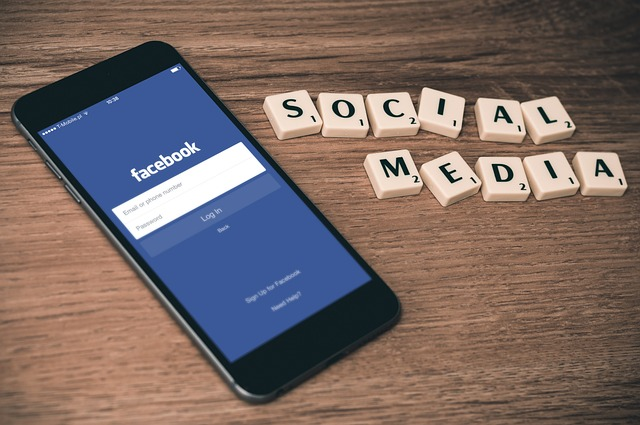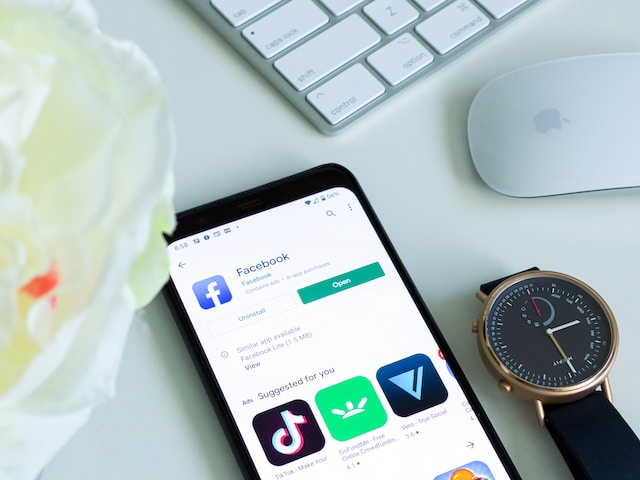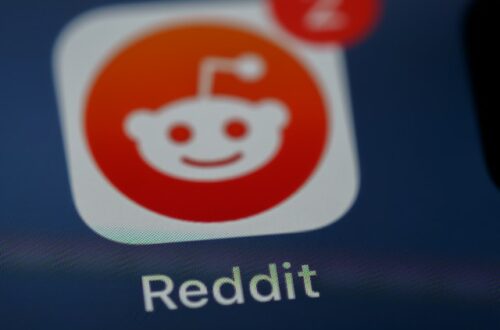Are you ready to transform your Facebook group into a lucrative money generating venture?
The world of social media is teeming with opportunities, and Facebook groups are no exception. That said, it’s not as easy as setting one up and waiting for the cash to roll in – you have to do it correctly.
In this guide, we’ll explore the pro tips and pitfalls of monetising Facebook groups, shedding light on the myriad possibilities for profitability.
Whether you’re a seasoned group admin or just getting started, this guide will unveil the strategies, tools, and insights you need to turn your online community into a thriving source of income. So, let’s unlock the full potential of your Facebook group and get you earning some money.
Why Monetise a Facebook Group?
From the strong sense of community to the target audience and the ability to foster meaningful interactions, Facebook groups provide a powerful platform for turning your passion or expertise into profits.

Monetising a Facebook group goes beyond financial gain; it’s about leveraging your group’s potential to its fullest.
Groups allow you to create a close-knit community around a specific interest, attracting passionate individuals with a shared enthusiasm that fosters strong community members’ engagement. By monetising the group with valuable content or products related to the niche, you enhance the community, making it profitable and enjoyable for both you and your members.
Monetising a Facebook group involves tapping into a focused and interested audience, increasing the chances of a positive response to your monetisation endeavours, such as promoting products, services, or relevant content. When executed effectively, this creates a mutually beneficial situation where you provide value to members who are already keen on what you have to offer.
There are a wide range of options when it comes to doing this, such as affiliate marketing, selling products, premium memberships, sponsored posts, and paid events. These methods can be customised to match your group’s niche and your skills, giving you the flexibility to create a strategy that suits your group and goals.
Also Read: Step-by-Step: How to Make Money on Pinterest Without a Blog
Successful Monetisation Ideas
Whether it’s a fitness group that offers premium workout plans, a cooking community that sells exclusive recipes, or a business-focused group that thrives on affiliate marketing, these examples will shed light on the many ways you can transform your group into a profitable venture.
Profitable Facebook groups span various niches and monetise by offering exclusive content and services. These can include fitness and wellness groups charging for workout plans and coaching, cooking communities selling recipes and kitchen products, business and entrepreneurship groups promoting relevant products and courses, specialised interest groups providing exclusive content or hosting workshops, and parenting communities offering parenting resources and webinars.
These diverse examples demonstrate how Facebook groups can generate income by catering to the unique needs and interests of their members.

Monetisation Strategies For Facebook Groups
Monetising a Facebook group involves various strategies, including premium memberships, affiliate marketing, product sales, sponsored posts, paid webinars, and donations.
Each strategy has its benefits and should be customised to fit the group’s niche and member interests, but a few tips for long term success include:
- Consistent Value
- Listen to Members
- Stay Compliant
- Diversify Your Income
- Community Building
- Quality Over Quantity
- Stay Informed
However you do it, selecting the most suitable monetisation path is crucial for the success of your Facebook group.
Membership Fees
If you opt for a membership-based monetisation model, group members will be charged for access to exclusive content, features, or community interactions. You can set fair membership fees, define what paying members will receive in return, and create a compelling value proposition that makes the subscription worthwhile.
Sponsored Content and Ads
If your group has a substantial and engaged following, businesses may be interested in paying for sponsored posts or ads within your group. By identifying suitable sponsors, you can negotiate partnerships, and integrate sponsored content without compromising the group’s integrity.
Affiliate Marketing
Affiliate marketing involves promoting products or services to your group members and earning a commission on sales generated through your referrals. This monetisation path can be ideal if your group’s niche aligns with relevant affiliate products or services.
Also Read: How to Quit Social Media and Reclaim Your Time: Effective Strategies

Ebooks, Courses, and Guides
Selling ebooks, courses, and guides are popular digital products that you can create and promote to your Facebook group members. Ebooks allow you to share in-depth knowledge in written form, while courses offer structured learning experiences. Guides provide concise, actionable information on specific topics.
Exclusive Content and Merchandise
Creating and selling exclusive content and merchandise is a lucrative monetisation approach. This strategy involves crafting and promoting unique digital materials, such as ebooks, guides, and video courses for your group members. It also encompasses designing and selling merchandise like custom T-shirts and mugs that align with your group’s theme. These offerings enhance the value for your members and serve as a dependable income stream for your group.
Webinars and Consultations
Webinars and consultations can be valuable digital products for monetising your Facebook group. Webinars allow you to deliver live or pre-recorded presentations to your members, offering expert knowledge or insights in a structured format. Consultations, on the other hand, provide one-on-one or group guidance on specific topics.
Also Read: Exploring the Pros and Cons of Social Media on Mental Health
Building and Growing a Facebook Group
Building a successful monetizable Facebook group begins with establishing a strong sense of community among your members, and in order to build a thriving Facebook group community, you need a strategic content plan and a consistent posting schedule.
Maintaining a regular posting schedule keeps your group active and interested, so make one. By consistently offering valuable content, you’ll keep members engaged, fostering a sense of community and making them more receptive to your monetisation efforts.
Creating a strong community hinges on engagement with each other too. This means encouraging members to participate actively in group discussions, share their thoughts, and interact with one another. You’ll learn strategies for sparking conversations, asking questions, and promoting member-generated content. The more engaged your members are, the more likely they are to explore and invest in your monetisation offerings.
Creating a robust Facebook group community also requires clear rules and effective moderation. This guarantees a safe and respectful atmosphere for member interactions. A well-organised and moderated group builds trust, making it more appealing for potential monetisation, as advertisers and members prefer well-moderated spaces.
Also Read: Discover The 5 Best Free AI Software Tools Available Today
Attracting and Retaining Members
Promotion and marketing are crucial for growing and maintaining a Facebook group, and to achieve this, you should focus on increasing awareness both within and outside Facebook.
Strategies like tapping into your network, partnering with related groups, and leveraging social media platforms can boost your group’s visibility. Crafting an appealing group description and utilising paid advertising can also be impactful. These actions help attract new members and retain your existing community, which is essential for successful monetisation.

To maintain a stable and engaged membership base, Facebook group admins should consider these member retention strategies:
- Consistent Value: Provide high-quality content, discussions, and resources to keep members engaged and invested.
- Community Engagement: Encourage interaction through questions, polls, and events.
- Exclusive Benefits: Offer perks to long-standing members, like premium content and early access.
- Transparency and Communication: Keep open communication, address concerns, and be clear about rules and decisions.
- Member Feedback: Regularly seek input from members to adapt your group’s offerings.
Implementing these strategies will help create a long-term, successful, and monetizable community.
User-Generated Content
Encouraging user-generated content (UGC) in your Facebook group is a potent tactic to boost member engagement and retention.
UGC includes member posts, comments, reviews, and valuable contributionss, and to promote UGC, you need to lead by example with your content; establish themed days for specific topics, host challenges or contests to inspire content creation, and recognize active members through shoutouts or rewards.
Embracing and celebrating UGC fosters an active, interactive community, ultimately increasing member retention and engagement as they feel valuable and wanted, which is essential for effectively monetising your Facebook group.
Also Read: Is 300 Mbps Good For Gaming? Evaluating Internet Speed For Gamers
Measuring and Optimising Monetisation
By continuously analysing your group’s performance and making data-driven decisions, you can maximise the profitability of your group and ensure that both you and your members benefit from your monetization efforts.
Tracking and analyzing revenue is fundamental for the long-term success of your monetizable Facebook group, so look at KPIs and analytics.
Key performance indicators (KPIs) are vital metrics for assessing revenue in a monetizable Facebook group. These KPIs encompass total revenue, revenue sources, member growth, engagement metrics, and conversion rates. Total revenue represents the group’s overall income, while revenue sources break down earnings from different monetisation methods.
Member growth rate influences revenue potential, and engagement metrics (e.g., likes, comments, shares) reflect community engagement. Conversion rates indicate the percentage of members becoming paying customers. Monitoring these KPIs helps assess financial health and discover avenues for enhancing monetization strategies.
To effectively track and analyse revenue generated from your Facebook group’s monetisation efforts, you’ll need the right tools.
These tools may include financial software, ad campaign tracking platforms, and custom analytics solutions. By selecting and using the appropriate tools, you can streamline your revenue-tracking processes and make data-driven decisions for optimizing your monetization strategies.
Adjusting Strategies
To effectively track and analyse revenue, consider using various financial management and analysis tools such as:
- Accounting Software: Use software like QuickBooks or Xero for tracking income, and expenses, generating financial reports, and maintaining financial records.
- Analytics Platforms: Implement tools like Google Analytics or Facebook Insights to monitor traffic, engagement, and conversion metrics specific to your monetisation efforts.
- Customer Relationship Management (CRM) Software: CRM systems help manage member interactions, revenue data, and communication strategies.
- Spreadsheet Software: Applications like Microsoft Excel or Google Sheets are useful for creating custom financial dashboards and conducting in-depth analysis.
- Revenue Tracking Apps: Explore specialised apps tailored to monetization methods like affiliate marketing, e-commerce, or digital product sales.
By incorporating these tools, you can adjust your strategies, make data-driven decisions, and optimise your group’s monetisation efforts efficiently.
Monetisation Pitfalls and How to Avoid Them
By being aware of these pitfalls and taking proactive measures to prevent them, you can preserve the long-term sustainability of your monetizable Facebook group.
Maintaining community trust is crucial for successful monetisation in a Facebook group, so never risk losing it. Prioritise transparent communication by keeping members informed about monetisation strategies and their benefits. Focus on providing value to members over generating revenue and stay consistent in delivering promised content and benefits. This trust is essential for long-term group success.
Effectively addressing member concerns is equally crucial for avoiding monetisation issues in your Facebook group. Responding promptly and empathetically when members express dissatisfaction or monetisation-related problems is essential. To handle member concerns, maintain open communication, be transparent about monetisation methods, provide ongoing value, and encourage feedback. Proactive and transparent addressing of member concerns helps maintain trust and fosters a positive and monetisation-friendly community environment.
In the context of monetisation, adherence to legal and ethical standards is another consideration. This involves complying with advertising disclosure laws, and data protection regulations, and upholding ethical principles like transparent communication with members and privacy respect. Operating within these boundaries is essential for long-term success and for preserving the trust of your community, as well as any partners or advertisers you work with.
You don’t want to build a great community only for it to get shut down, right?
Successful Facebook Groups Take Effort
Monetising a Facebook group offers an opportunity to turn your passion and expertise into a sustainable income source, but it takes hard work, especially at the start.
This guide highlights the power of Facebook groups in creating engaged communities and generating revenue, but there is a lot you will only learn through trial and error.
Key points to remember though, are building a niche community, choosing the right monetisation method for that community, encouraging user-generated content, and following legal and ethical rules.
Success demands dedication, consistency, and genuine care for your community. With the right approach, monetising your Facebook group can be both profitable and personally fulfilling, but you have to get started to make a go of it – so what are you waiting for?





